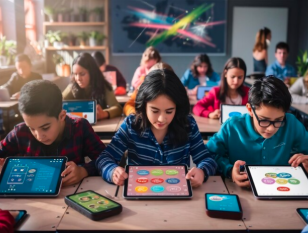Turning study time into playtime might sound too good to be true, but that’s exactly what gamification can offer. By blending learning with elements of gaming—such as points, levels, badges, and challenges—students can stay more engaged, motivated, and even have fun while studying. Here’s how to use gamification as a smart study habit.
1. Set Up Point Systems for Tasks
Create a simple reward system. For every completed study session or finished chapter, assign yourself points. You can decide how many points equal a small treat or break. This system mimics game mechanics and provides instant gratification for consistent effort.
2. Use Quiz Apps With Game Features
Apps like Kahoot!, Quizlet, and Tinycards allow you to study using flashcards, quizzes, and competitions. These platforms often include leaderboards, timers, and streak tracking to make study sessions more dynamic and less monotonous.
3. Turn Daily Goals Into Levels
Instead of seeing your to-do list as a chore, turn it into a level-up game. Break larger goals into small, achievable “levels” like completing five practice problems or reviewing a page of notes. As you “level up,” reward yourself with something small—like a sticker or a favorite snack.
4. Join Study Challenges With Friends
Turn learning into a group challenge. Compete with classmates to see who can memorize the most vocabulary words or finish a reading assignment first. Friendly competition keeps motivation high and adds a social aspect to studying.
5. Use Visual Progress Trackers
Create a game board or progress map on paper or a whiteboard. As you accomplish tasks, move a token or mark progress visually. Watching your advancement builds momentum and keeps you focused.
6. Reward Consistency With Badges
Design your own set of “achievement badges.” For instance, you might earn a badge for studying five days in a row, finishing a full review without distractions, or teaching someone else what you learned. This adds a fun layer of accomplishment.
7. Try Educational Games Online
There are plenty of online games that teach math, language, history, and science in creative formats. Look for games that are designed for your age or grade level and use them to reinforce what you’ve already studied.
Why It Works
Gamification makes studying feel less like a requirement and more like an adventure. It taps into your natural desire for achievement, progress, and enjoyment. When you start to associate study time with positive emotions, your focus and retention improve without the usual stress.
Final Thought
Adopting gamified study habits isn’t about replacing hard work—it’s about reimagining it. When you turn learning into a game, you give yourself new tools to stay motivated, track your growth, and most importantly, keep going. So go ahead—press start on your study session and level up your learning journey.














